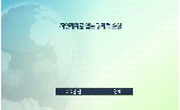Purpose: The objective of this research is to investigate climate change impacts and resilience strategies in an outer island community in Kiribati, a Pacific nation highly vulnerable to environmental changes. Originality: This research is the first e...
http://chineseinput.net/에서 pinyin(병음)방식으로 중국어를 변환할 수 있습니다.
변환된 중국어를 복사하여 사용하시면 됩니다.
- 中文 을 입력하시려면 zhongwen을 입력하시고 space를누르시면됩니다.
- 北京 을 입력하시려면 beijing을 입력하시고 space를 누르시면 됩니다.

Changing Vulnerability to Climate Change and Health Impacts in an Outer Island in Kiribati: A Qualitative Study
한글로보기https://www.riss.kr/link?id=A109505439
- 저자
- 발행기관
- 학술지명
- 권호사항
-
발행연도
2024
-
작성언어
-
-
주제어
기후변화 ; 취약성 ; 위험인식 ; 기후 회복력 ; 키리바스 ; Climate Change ; Vulnerability ; Risk Perception ; Climate Resilience ; Kiribati
-
KDC
349
-
등재정보
KCI등재
-
자료형태
학술저널
-
수록면
115-127(13쪽)
- DOI식별코드
- 제공처
-
0
상세조회 -
0
다운로드
부가정보
다국어 초록 (Multilingual Abstract)
Originality: This research is the first ethnographic investigation in outer islands of Kiribati regarding the influence of climate change on the islanders’ life and health.
Methodology: Using a qualitative, ethnographic approach, we explore community perceptions of climate change, health impacts, and local adaptations to environmental stressors. A purposive sampling of 48 households and five primary healthcare providers was conducted to gather insights into how residents experience and respond to challenges such as coastal erosion, water scarcity, food insecurity, and health risks. Data were collected through semi-structured interviews in I-Kiribati and English, focusing on three core domains: perceptions of climate risk, identification of vulnerable groups, and the role of social networks in resilience.
Result: The findings highlight a high level of climate change awareness, with participants describing the loss of land, increasingly unpredictable weather, and rising salinity as immediate threats to their livelihoods. Coastal erosion and saltwater intrusion have significantly reduced arable land and freshwater resources, forcing islanders to relocate and rely on communal water tanks. Health impacts include increased prevalence of waterborne diseases, respiratory issues, and heat stress, exacerbated by limited healthcare resources. Additionally, rising sea temperatures and ecological changes have disrupted fishing, a vital food source, leading to greater reliance on imported goods. Despite these challenges, social networks, known locally as “macoro,” play a crucial role in resilience, facilitating communal water sharing, labor for relocating homes, and collective resource management. However, the community also expresses climate anxiety and a desire for external support to develop sustainable adaptation strategies.
Conclusions and Implication: The findings of this research underscore the need for culturally sensitive, community-driven adaptation policies that address the specific vulnerabilities of Kiribati’s outer islands. This study contributes to understanding resilience in Pacific atoll communities, highlighting the value of traditional support networks and the urgent need for targeted interventions to mitigate climate impacts and support adaptive capacity.
Purpose: The objective of this research is to investigate climate change impacts and resilience strategies in an outer island community in Kiribati, a Pacific nation highly vulnerable to environmental changes.
Originality: This research is the first ethnographic investigation in outer islands of Kiribati regarding the influence of climate change on the islanders’ life and health.
Methodology: Using a qualitative, ethnographic approach, we explore community perceptions of climate change, health impacts, and local adaptations to environmental stressors. A purposive sampling of 48 households and five primary healthcare providers was conducted to gather insights into how residents experience and respond to challenges such as coastal erosion, water scarcity, food insecurity, and health risks. Data were collected through semi-structured interviews in I-Kiribati and English, focusing on three core domains: perceptions of climate risk, identification of vulnerable groups, and the role of social networks in resilience.
Result: The findings highlight a high level of climate change awareness, with participants describing the loss of land, increasingly unpredictable weather, and rising salinity as immediate threats to their livelihoods. Coastal erosion and saltwater intrusion have significantly reduced arable land and freshwater resources, forcing islanders to relocate and rely on communal water tanks. Health impacts include increased prevalence of waterborne diseases, respiratory issues, and heat stress, exacerbated by limited healthcare resources. Additionally, rising sea temperatures and ecological changes have disrupted fishing, a vital food source, leading to greater reliance on imported goods. Despite these challenges, social networks, known locally as “macoro,” play a crucial role in resilience, facilitating communal water sharing, labor for relocating homes, and collective resource management. However, the community also expresses climate anxiety and a desire for external support to develop sustainable adaptation strategies.
Conclusions and Implication: The findings of this research underscore the need for culturally sensitive, community-driven adaptation policies that address the specific vulnerabilities of Kiribati’s outer islands. This study contributes to understanding resilience in Pacific atoll communities, highlighting the value of traditional support networks and the urgent need for targeted interventions to mitigate climate impacts and support adaptive capacity.
동일학술지(권/호) 다른 논문
-
What Is Day Zero Financing? A Global Security Perspective for Pandemic Response
- 국제개발협력학회
- Ruchir Agarwal(Ruchir Agarwal)
- 2024
- KCI등재
-
Economic Evaluation of COVID-19 ODA Interventions with Equity in Focus: A Methodological Reflection
- 국제개발협력학회
- Eunmi Song
- 2024
- KCI등재
-
The Malaria Vaccination Era: How Endemic Countries and Donors Can Make the Most of R21
- 국제개발협력학회
- Tom Drake(Tom Drake)
- 2024
- KCI등재
-
The Global Response to Mpox: A Feeling of Déjà Vu?
- 국제개발협력학회
- Janeen Madan Keller(Janeen Madan Keller)
- 2024
- KCI등재




 스콜라
스콜라





